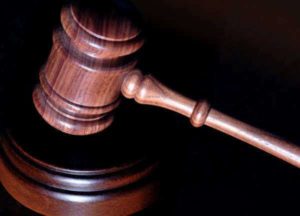Unveiling the Dark Side of Copyright Law Enforcement: A Shocking Reality
In an age where digital content is ubiquitous, copyright law serves as a crucial framework for protecting the rights of creators and ensuring that their intellectual property is not exploited without compensation. However, the enforcement of these laws has increasingly come under scrutiny, revealing a darker side that raises questions about the balance between protecting creators and stifling creativity. This article delves into the complexities of copyright law enforcement, examining its implications for artists, innovators, and society at large.
Understanding Copyright Law: A Brief Overview of Its Purpose and Scope
Copyright law is designed to protect the rights of creators by granting them exclusive control over the use and distribution of their original works, which can include literature, music, art, and software. The primary purpose of copyright is to incentivize creativity by ensuring that creators can reap the financial benefits of their labor. Copyright protection typically lasts for the life of the author plus an additional 70 years, allowing for a significant period during which the creator or their heirs can monetize the work. However, the scope of copyright law has expanded over the years, leading to a complex web of regulations that can sometimes hinder rather than help the creative process.
The Mechanisms of Copyright Enforcement: Tools and Tactics Used by Authorities
Copyright enforcement is carried out through a variety of mechanisms, including legal actions, digital monitoring, and the use of automated systems to detect infringement. Authorities and copyright holders often employ sophisticated software to track unauthorized use of their works online, leading to the issuance of takedown notices under the Digital Millennium Copyright Act (DMCA). Additionally, organizations such as the Recording Industry Association of America (RIAA) and the Motion Picture Association of America (MPAA) actively pursue legal action against alleged infringers, often resulting in hefty fines or even criminal charges. These tactics, while effective in some cases, can also lead to unintended consequences, such as the suppression of legitimate creative expression.
The Impact of Copyright Enforcement on Creativity and Innovation in the Arts
The aggressive enforcement of copyright laws can have a chilling effect on creativity and innovation. Artists and creators may feel constrained by the fear of legal repercussions, leading them to self-censor or avoid exploring new ideas that could inadvertently infringe on existing works. This environment stifles collaboration and the free exchange of ideas, which are essential for artistic growth. Moreover, the high costs associated with legal battles can deter emerging artists from pursuing their passions, ultimately resulting in a less diverse and vibrant cultural landscape. The tension between protecting intellectual property and fostering an environment conducive to creativity remains a critical issue in the ongoing discourse surrounding copyright law.
Case Studies: Notable Instances of Overreach in Copyright Law Enforcement
Several high-profile cases illustrate the potential for overreach in copyright law enforcement. One notable example is the case of the "Blurred Lines" lawsuit, where the family of Marvin Gaye claimed that Robin Thicke and Pharrell Williams' hit song infringed on Gaye's "Got to Give It Up." The jury ruled in favor of Gaye's estate, resulting in a substantial financial penalty for Thicke and Williams. Critics argued that this decision set a dangerous precedent, as it blurred the lines between inspiration and infringement, potentially stifling future creativity. Another instance is the case of the "Dancing Baby," where a mother faced legal action for posting a video of her child dancing to a Prince song. The case highlighted the absurdity of copyright enforcement when it targets innocent, non-commercial uses of creative works, raising questions about the fairness of such actions.
The Ethical Dilemmas: Balancing Intellectual Property Rights and Public Access
The enforcement of copyright law raises significant ethical dilemmas, particularly in balancing the rights of creators with the public's right to access information and culture. While it is essential to protect the interests of creators, overly stringent enforcement can restrict access to knowledge and cultural heritage, particularly for marginalized communities. The rise of the internet has further complicated this balance, as the ease of sharing and remixing content can lead to conflicts between copyright holders and users. Advocates for reform argue that a more nuanced approach is needed—one that recognizes the importance of public access while still respecting the rights of creators. This ongoing debate underscores the need for a reevaluation of copyright law in the digital age.
Future Directions: Reforming Copyright Law for a Fairer Creative Landscape
As the landscape of creativity continues to evolve, so too must copyright law. Reform efforts are underway to create a more equitable framework that balances the rights of creators with the need for public access and innovation. Proposals include shortening copyright terms, implementing fair use provisions that allow for transformative works, and establishing clearer guidelines for what constitutes infringement. Additionally, there is a growing call for the adoption of open licensing models, such as Creative Commons, which enable creators to share their works while retaining certain rights. By embracing these reforms, society can foster a more inclusive and dynamic creative environment that encourages collaboration and innovation while still respecting the rights of individual creators.
The enforcement of copyright law is a double-edged sword, essential for protecting creators yet fraught with challenges that can hinder creativity and innovation. As we navigate the complexities of intellectual property in the digital age, it is imperative to strike a balance that honors the rights of creators while promoting public access and cultural exchange. By addressing the ethical dilemmas and reforming outdated practices, we can work towards a fairer creative landscape that benefits all stakeholders involved. The future of creativity depends on our ability to adapt and evolve copyright law in a way that reflects the realities of our interconnected world.
